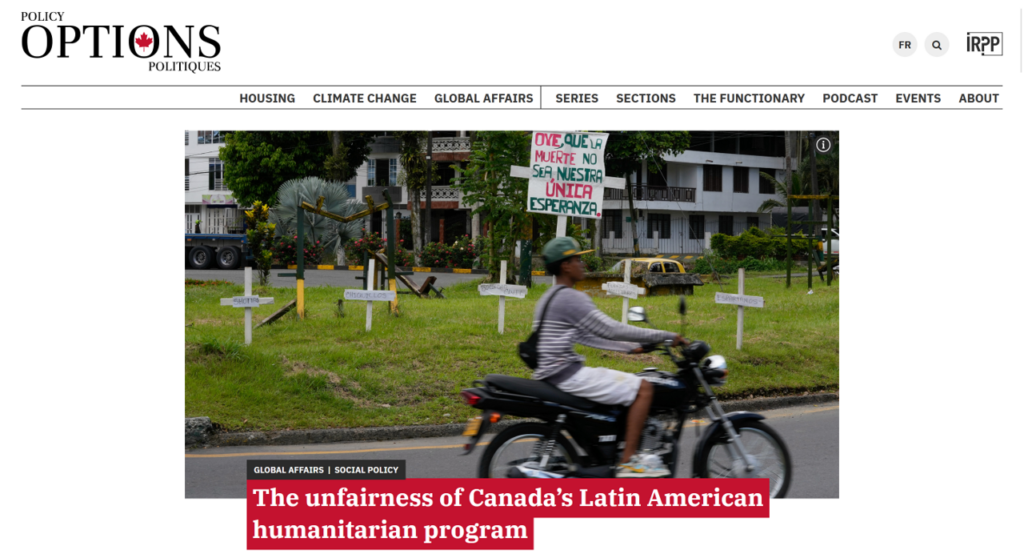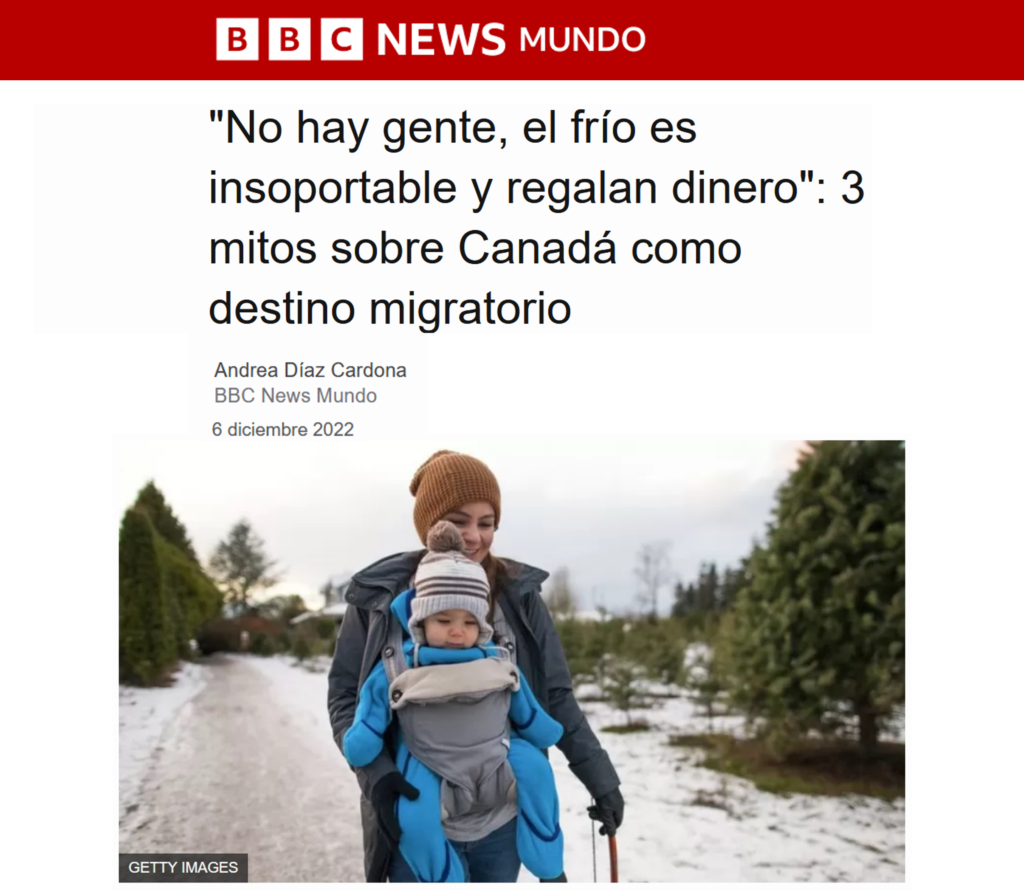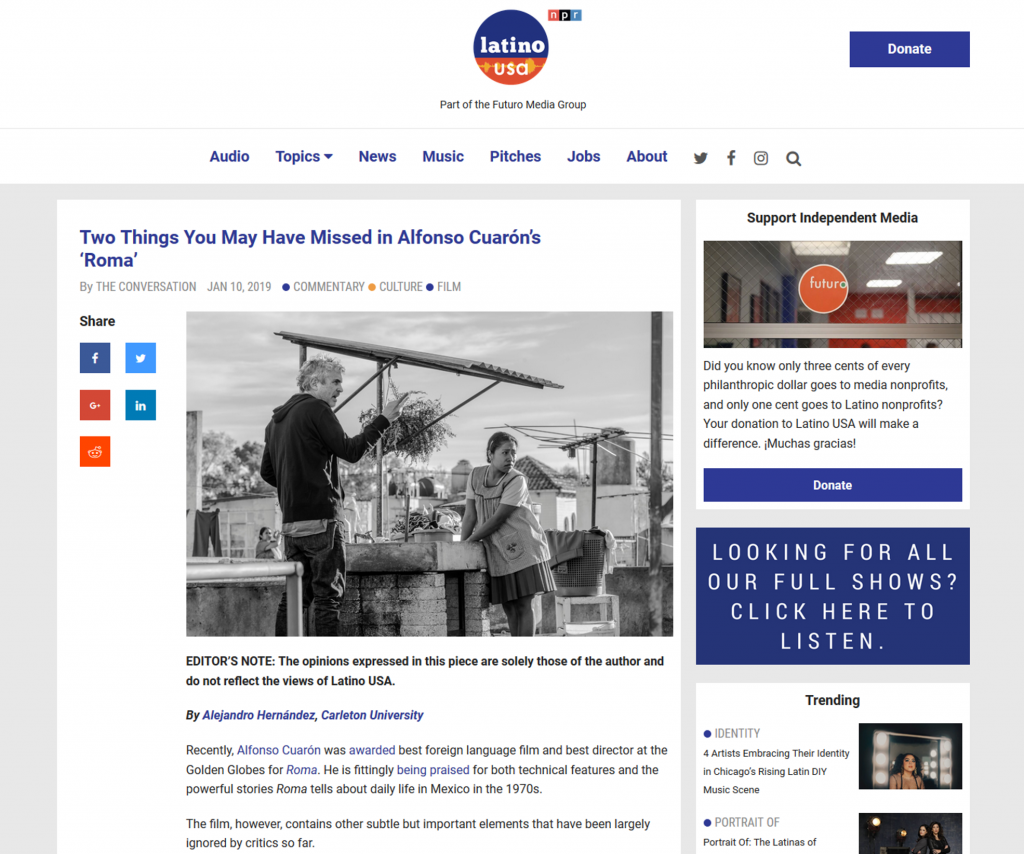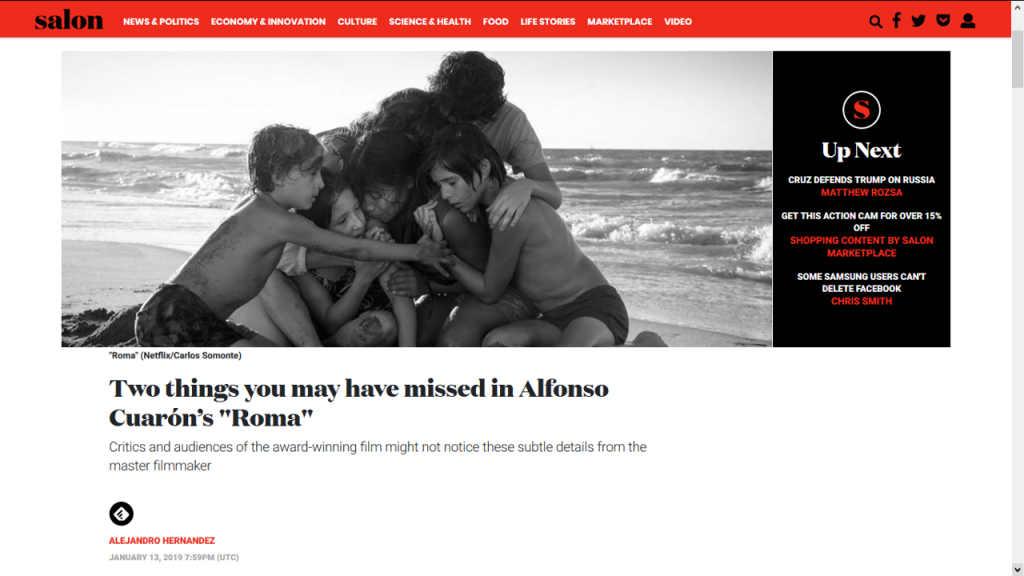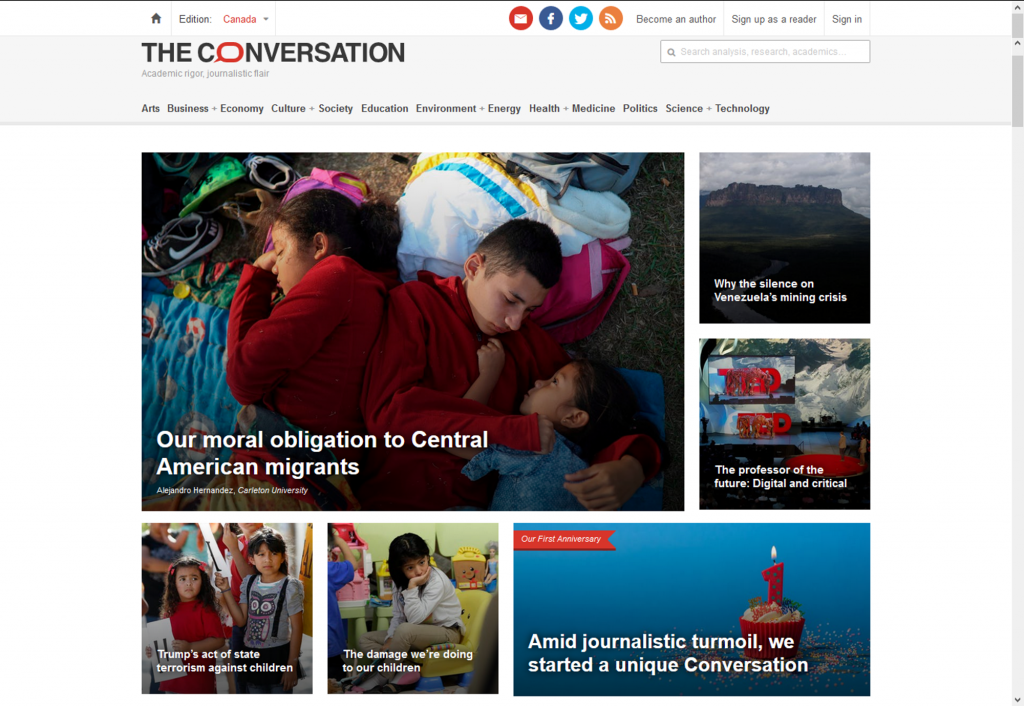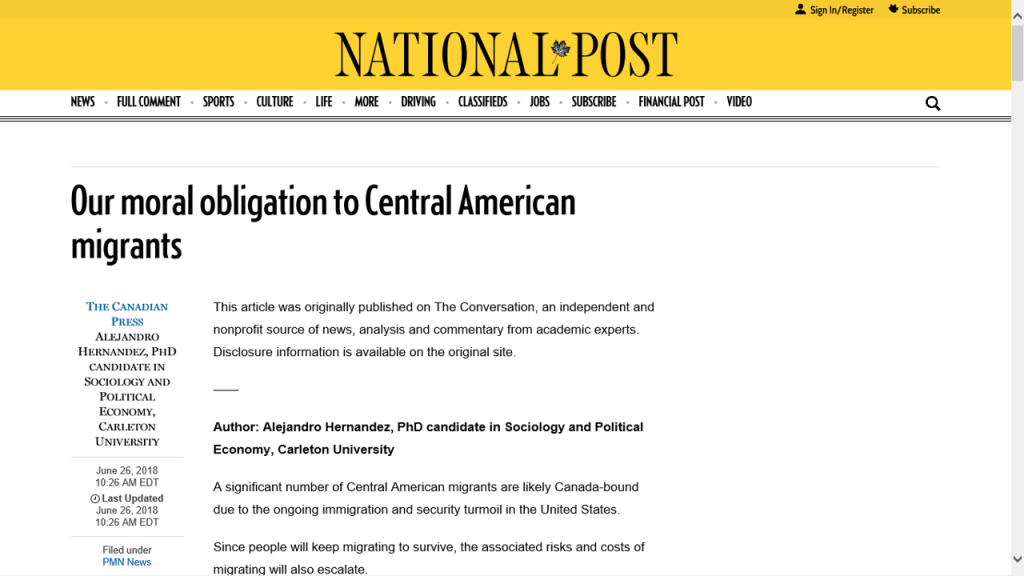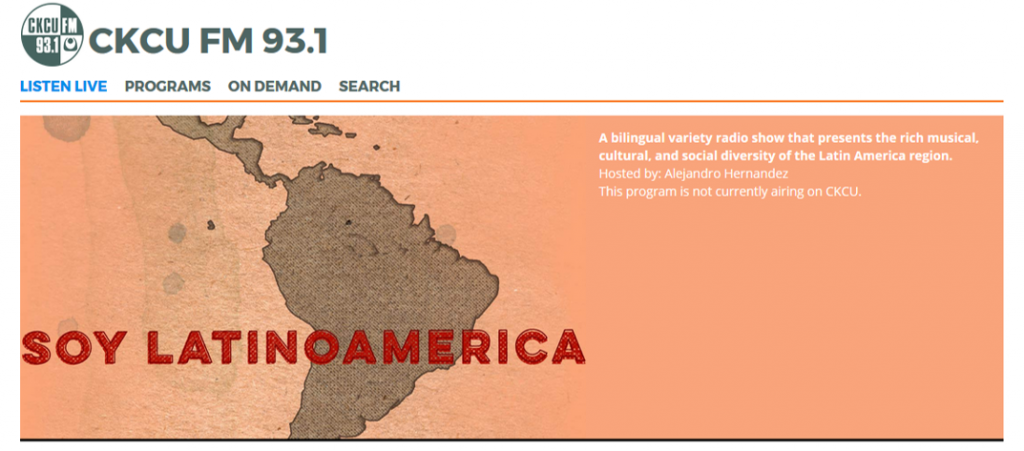Curbing temporary workers in Quebec: “complex and contradictory decisions” (in English here, in French here, and in Spanish here), August 21, 2024
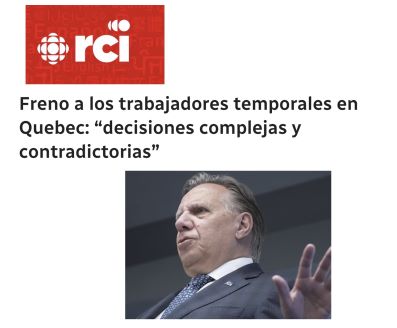
“Behind this decision there is a political negotiation and several potential reasons that do not eliminate each other, but can be politically exploited depending on the role of each political actor, and which at the same time are characterized not only by being complex but even contradictory.”
Interviewed by Radio-Canada International.
Immigration is vital for Canada, but structural changes are necessary (in English here, in French here, and in Spanish here), June 8, 2024
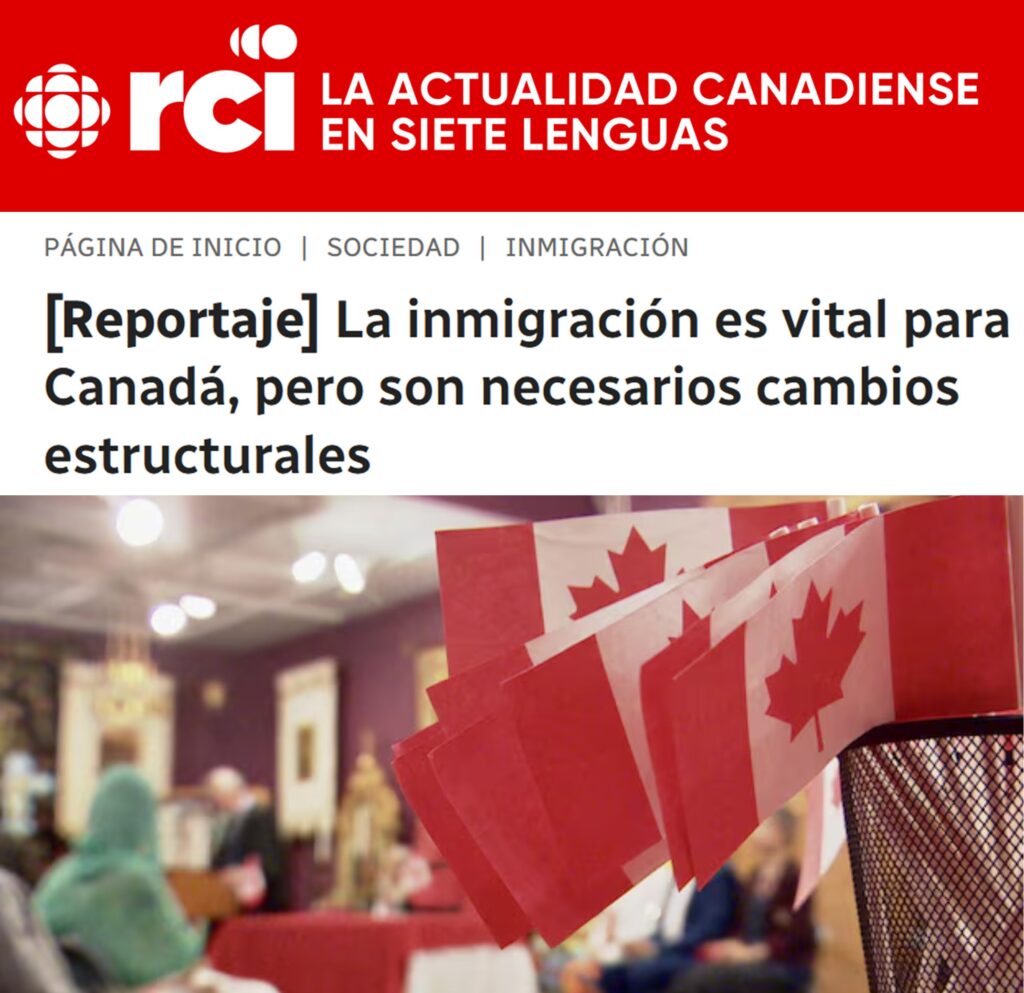
“Since the 1980s, we know of immigrants whose education and experience are not recognized….. [However,] Canada continues to experience a dire need of people… There needs to be structural changes in the Canadian immigration system to ensure that those arriving in the country have every chance of effective integration into society…. [Unfortunately,] current structures make it very complicated for immigrants to integrate, and this is a paradox. We need people to help to increase production, but we don’t have the means. We saw this with the housing crisis: we need migrants who know about construction, but we have nowhere to house them.”
Interviewed by Radio-Canada International.
The unfairness of Canada’s Latin American humanitarian program (in English here, in French here, and in Spanish here), January 26, 2024
I wrote a critical Op-Ed regarding the program for displaced Haitians, Venezuelans and Colombians that Immigration, Refugees and Citizenship Canada (IRCC) developed. The program created numerous inequities that must be corrected to prevent abuse and help those in need.
Read the full article in Policy Options here. Also republished by the Philippine Canadian Inquirer and Diálogos Intercultural Magazine.
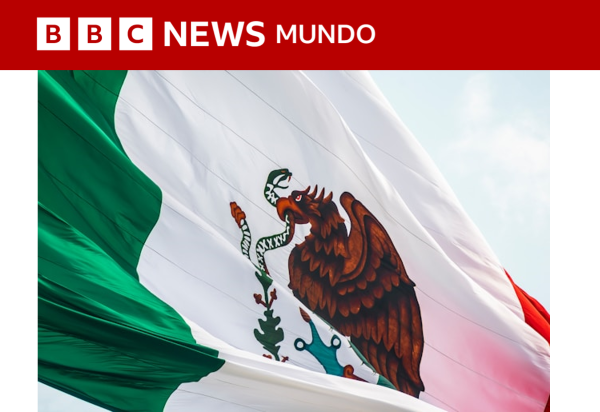
The re-imposition of visas for Mexicans [in Canada] is a response to pressure from Washington, as well as from within Canada, particularly from the province of Quebec. And they argue that it is an easy access point to the country […] That pressure came at a time when Canadians have expressed concern about the increase in demand for housing, the effects of rising costs of living and inflation.
Interviewed by BBC News Mundo.
Canada’s housing crisis: multiple causes, not just immigration / Crise du logement au Canada : des causes multiples, pas juste l’immigration (in Spanish here, in French here, and in English here), January 23, 2024
“Is immigration responsible for Canada’s housing crisis? A negative discourse on immigration increases when major economic crises affect ordinary people, especially when unemployment, inflation and expenses rise.”
Interviewed by Radio-Canada International.
“They arrest you, but help you carry your bags”: How Canada welcomes refugees and how it differs from the U.S. (in Spanish here, in English here, and in French here), April 18, 2023
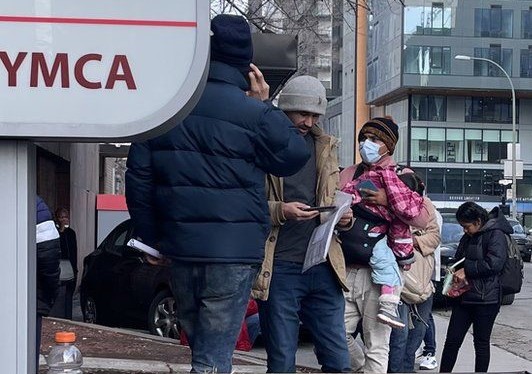
“There is a lot of delay in the evaluation of refugee case decisions, which means that people who managed to apply for refugee status will probably have to wait two or three years to find out if they are going to be accepted as a protected person or not.”
Interviewed by BBC News Mundo
“There are no people, the cold is unbearable, and they give money away.” 3 myths about Canada as an immigration destination (in Spanish here, here and here, in English here, in French here, and in Portuguese), December 6, 2022
“Canada has been supporting [immigrant] integration through third parties since the 1990s. It selects agencies that promote integration and settlement services in provinces and communities. [However, t]he budget has to be requested and renewed continuously by these agencies.” “No hay gente, el frío es insoportable y regalan dinero”: 3 mitos sobre Canadá como destino migratorio
Interviewed by BBC News Mundo
What does the demanding (immigration) points program that thousands of Latinos want to use to live and work in Canada consist of? (in Spanish here, in English here, and in French here), June 23, 2022
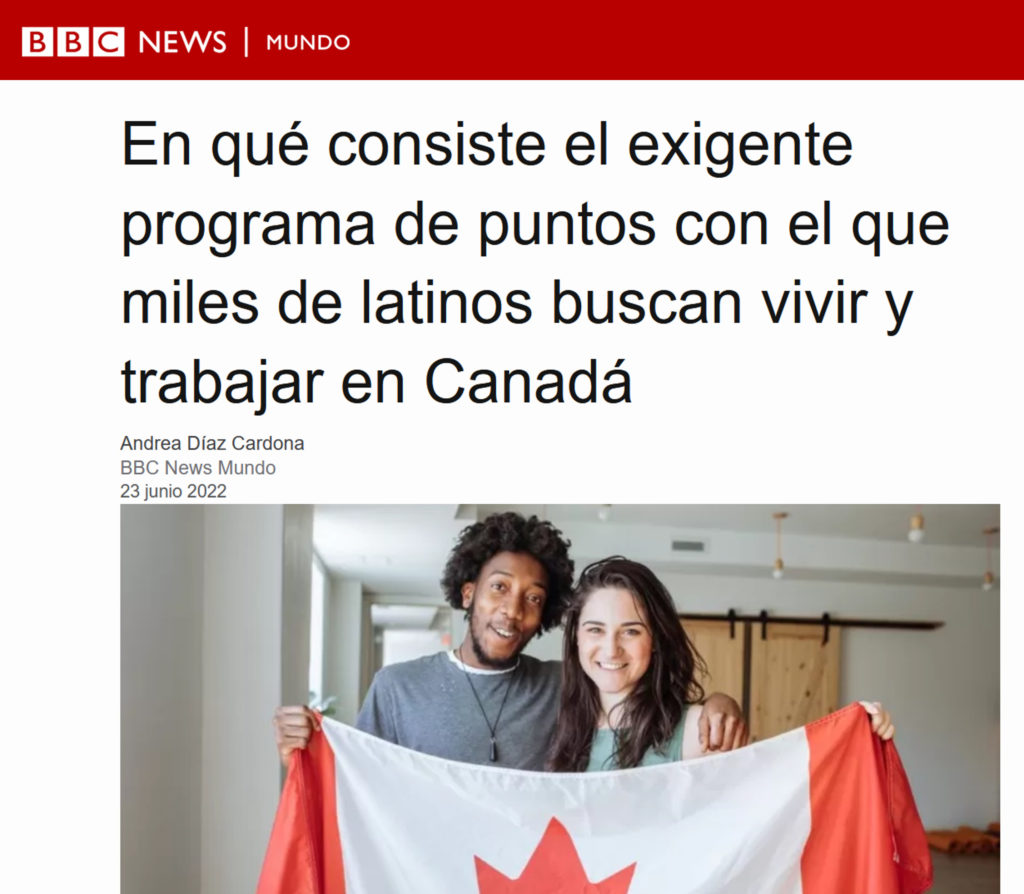 “On the one hand, the system, in theory, privileges knowledge and rewards it possession by offering permanent residency to the holder, but at the same time, once the border is crossed, it becomes a punitive system regarding those professions because the system neither recognizes the international experience nor the education that those immigrants obtained abroad. It forces them to enter its own system of classification and discrimination.”
“On the one hand, the system, in theory, privileges knowledge and rewards it possession by offering permanent residency to the holder, but at the same time, once the border is crossed, it becomes a punitive system regarding those professions because the system neither recognizes the international experience nor the education that those immigrants obtained abroad. It forces them to enter its own system of classification and discrimination.”
Interviewed by BBC News Mundo
Inmigrantes en Canadá: ¿quiénes están viniendo de Latinoamérica? (in English here, in Spanish here and in French here), November 8, 2022
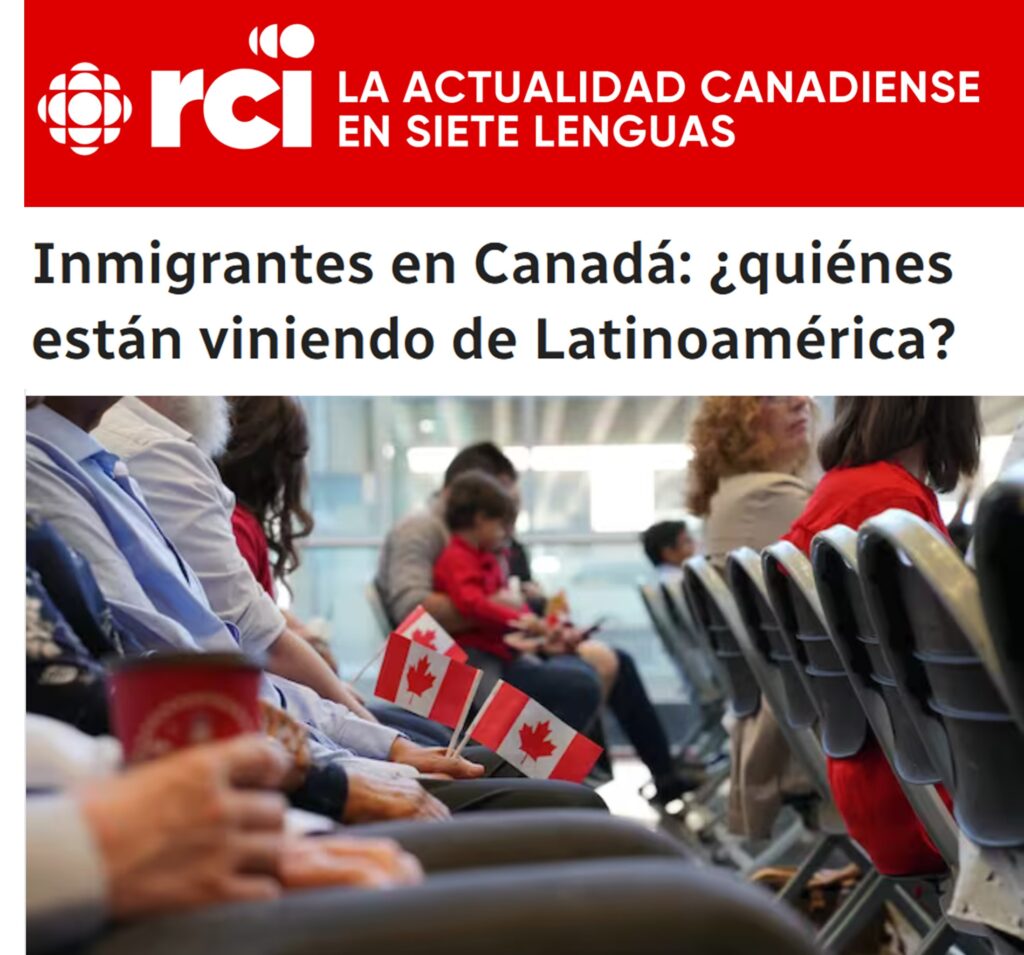
“ [Latin American] position .. However, it is Brazilians who have arrived the most in Canada in the last five years, according to official data.”
Interviewed by Radio Canadá Internacional.
The Latino Wage Gap in Canada (in Spanish here, in English here, and in French here), March 31, 2022
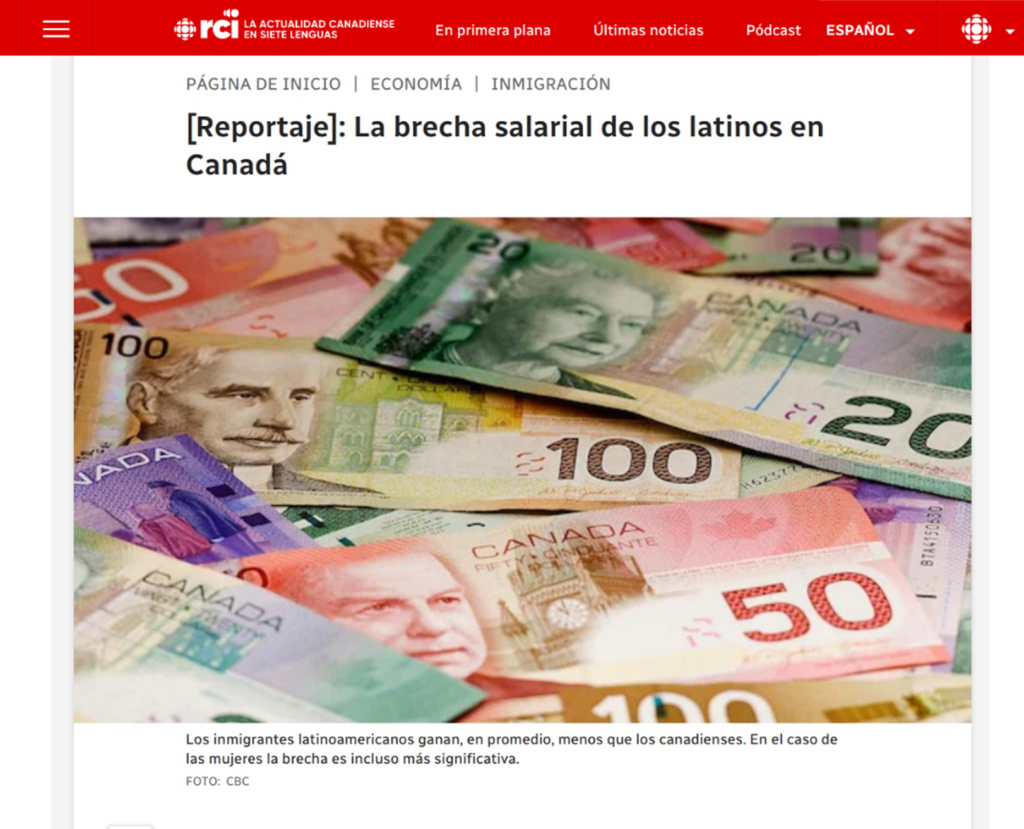
La brecha salarial “corresponde a múltiples factores, entre los que destacan el campo de empleo, la ubicación, la nacionalidad, el tiempo en Canadá y su género. ‘No estamos muy bien en nivel de promedio salarial con relación a los canadienses.’ […] Esto evidencia que si bien Canadá mantiene un sistema migratorio fuerte, muy bien establecido y reconocido a nivel mundial, que incluso es imitado por otros países, la integración económica de muchos inmigrantes sigue siendo un reto.”
Interviewed by Radio Canadá Internacional.
Latin Americans face a stubborn pay gap in Canada, data shows, August 3, 2021
Immigrants’ labour force has become indispensable in Canada due to aging demographics. Through our most recent exploratory research and drawing from 2016 census data, we analyzed how well Latinos are doing in terms of economic integration.
Across the board, Latin Americans earned less than the average Canadian. This produces unequal economic conditions, and can make coming to, and working in Canada more difficult. In order to reach economic parity with the average Canadian, Latino workers have to overcome multiple barriers. These include accent and language obstacles, professional accreditation issues, discriminatory hiring processes and the effect of gender.
Latinos’ economic integration journey requires both individual and collective efforts as well as policy interventions to ensure good outcomes for this vital labour force group. Read the full article in The Conversation Canada, the National Post, Yahoo News, Flipboard, Foreign Affairs New Zealand, and the Philippine Canadian Inquirer.
January 8, 2019: Two things you may have missed in Alfonso Cuarón’s ‘Roma’
“Alfonso Cuarón’s film Roma has been fittingly being praised for both technical features and the powerful stories it tells about daily life in Mexico in the 1970s. The film, however, contains subtle but important elements that have been largely ignored by critics so far: uneven power relations mediated by class, gender, age, affection, ethnicity, race and the urban/rural divide.”
Read the full article in The Conversation Canada here (English) or The Conversation Spain here (Spanish), or The Conversation Québec here (French). Republished in The National Post (Canada), Huffington Post (Québec), Entrepreneur (USA), NPR’s Latino (USA), Salon (USA), Univision (USA), Latino Rebels (USA), Alternet (USA), The Week (India), Mexico News Daily, Culture Matters (UK), El Diario (Spain), El Comercio (Spain), El Plural (Spain), ContraInformación (Spain), TheCult (Spain), Conexión Migrante (USA and Mexico), and CZN Mundo.
August 7, 2018: Central Americans need more than Canadian handwringing
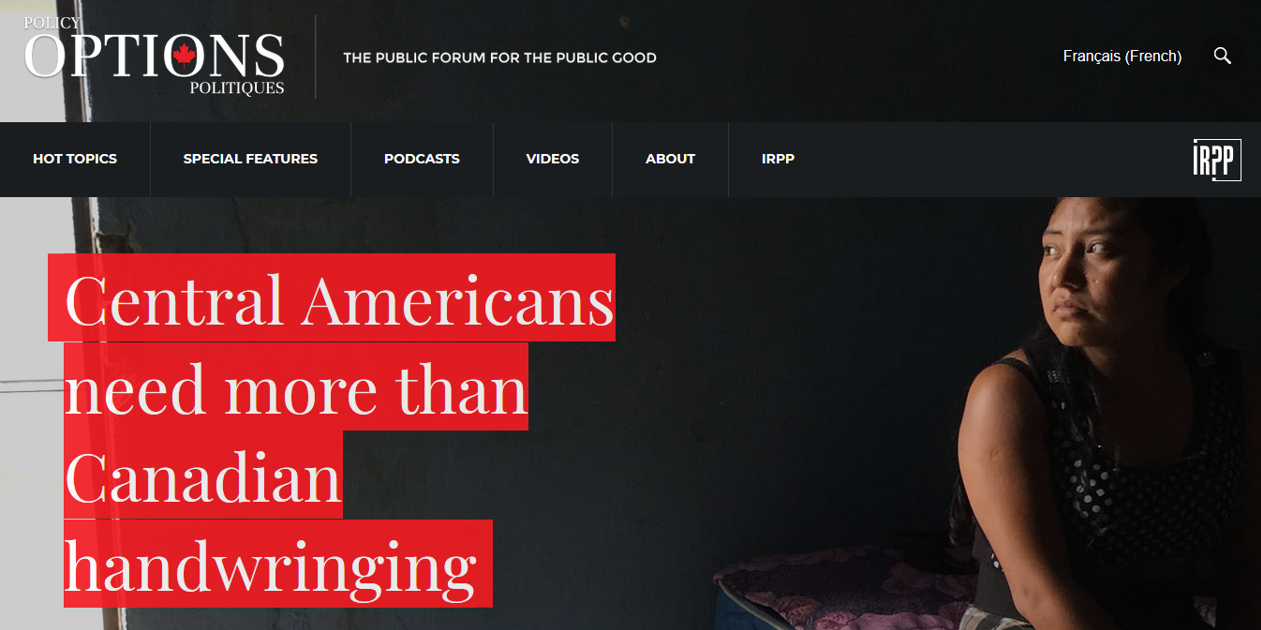
“The migrant crisis at the US-Mexico border is thousands of kilometers from Canada, but Ottawa could do more than just watch with concern.”
Interviewed by Ryan Hicks for this comprehensive analysis of Central American immigration. Read the full article, published by the Institute for Research on Public Policy (IRPP)’s Policy Options magazine, here.
July 7, 2018: Central American migration to the North
“Migrants continue to make the challenging journey to try to get across the US border. Many of the children and adults are from Guatemala, Honduras and El Salvador, the so-called Northern triangle. The humanitarian crisis these migrants are fleeing is complex, and some say Canada needs to adjust its foreign policy to offer more support.”
Listen to the radio story (20:14′), where I was interviewed by Ryan Hicks, journalist and McGill University‘s McBurney Latin America Fellow, for CBC Radio 1’s The World This Weekend. Hick’s piece won Amnesty International Canada’s 24th Annual Media Award.
July 1, 2018: Mexican Elections
“Third time’s the charm. Andrés Manuel López Obrador won Mexico’s presidential election Sunday after two previous failed runs. What does his victory mean for Mexicans?”
Interviewed for CBC Radio 1’s Ottawa Morning show. You can listen the interview here.
Our moral obligation to Central American migrants (Op-Ed) June 2018
“A significant number of Central American migrants are likely Canada-bound due to the ongoing immigration and security turmoil in the United States. Since people will keep migrating to survive, the associated risks and costs of migrating will also escalate. Consequently, Canada needs to enact inter-related migration and foreign policy measures that take into account the reasons why people claim asylum. These actions must go beyond Band-Aid solutions and ineffective strategies.”
Read my full op-ed in The Conversation here.
Soy Latinoamérica
I produced and hosted the radio show Soy Latinoamérica at CKCU 93.1 FM, from August 2013 to June 2017. Soy Latinoamérica was a bilingual variety radio show that presented the Latin America and the Caribbean rich musical, cultural, and social diversity to diverse audiences in the Ottawa/Gatineau region and Canada in general. The show was enriched with the participation of different personalities, ranging from the national musical scene (Latina/o-Caribbean and Latina/o-Caribbean descent artists) to professionals with different backgrounds, artists, activists, students, scholars, and representatives of diverse Latin American national communities. Soy Latinoamérica also offered a space to broader members of the Ottawa/Gatineau community to present information about relevant social issues, ranging from disability to poverty to homelessness. The show was mainly hosted in English, although Spanish was also spoken, since one of the show’s objectives was to attract English-only speaking audiences. You can find a selection of interviews here, which I made over the almost 4 years that the radio show was produced, and also listen the respective podcast of each program. The full playlist of all the programs is here.
Latin America and Caribbean Studies e-Bulletin (Carleton University)
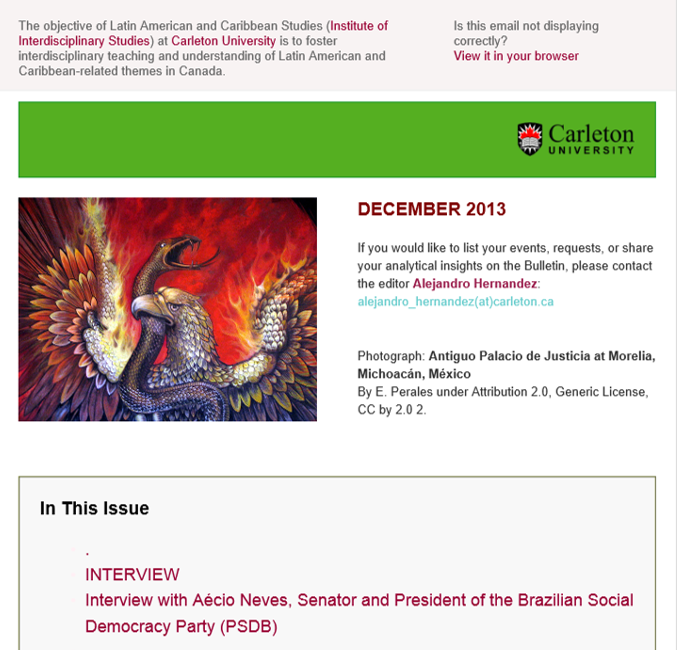
I was the editor of the e-Bulletin of Latin America and Caribbean Studies at Carleton University, from May 2013 to January 2016. I visually revamped the e-bulletin and established a monthly program of distribution, as well as increased the number of subscribers.
Migrant Dreams
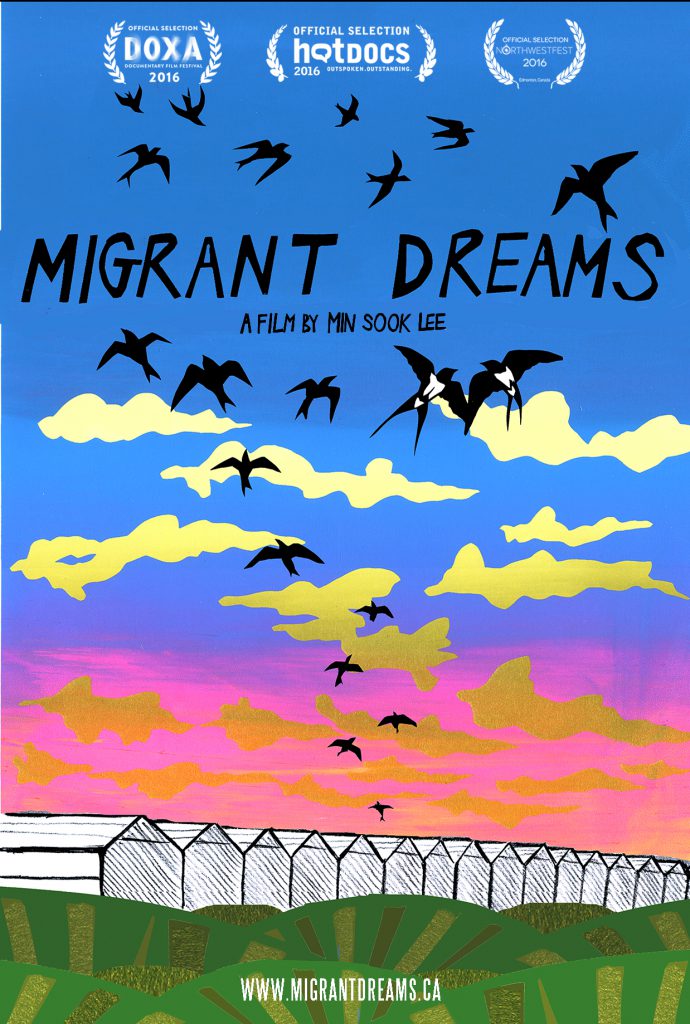
On October 6, 2016, I organized the screening of Migrant Dreams at Carleton University, a powerful feature documentary by multiple award-winning director Min Sook Lee (El Contrato, Hogtown, Tiger Spirit) and Emmy award-winning producer Lisa Valencia-Svensson (Herman’s House). After the secreening, Prof. Min Sook Lee and activist Dr. Evelyn Encalada from Justicia for Migrant Workers were in attendance for a Q&A session.
Migrant Dreams tells the undertold story of migrant agricultural workers struggling against Canada’s Temporary Foreign Worker Program (TFWP) that treats foreign workers as modern-day indentured labourers. Under the rules of Canada’s migrant labour program, low wage migrants are tied to one employer.
Migrant Dreams exposes the underbelly of the Canadian government labour program that has built a system designed to empower brokers and growers to exploit, dehumanize and deceive migrant workers who have virtually no access to support or information in their own language. Workers willing to pay exorbitant fees to work at minimum wage jobs packing the fruits and vegetables we eat in our homes. Migrant workers who deserve basic labour and human rights. Canada it seems, has failed them.

